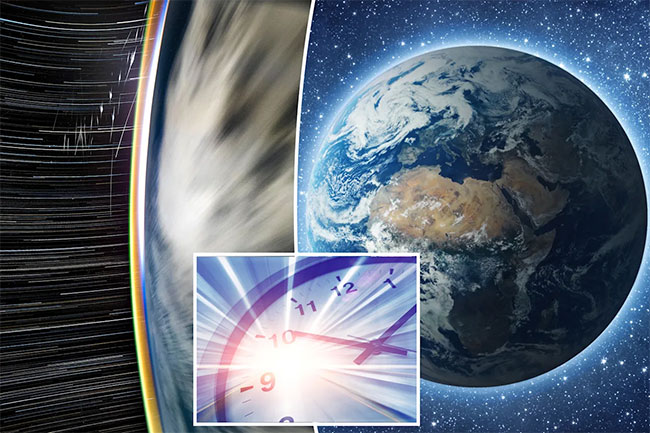Another short day today; experts rush to find why Earth is speeding up
August 5, 2025 12:07 pm
Earth is spinning faster than usual, and scientists are still unsure why. While the change is imperceptible to humans, experts are closely monitoring the phenomenon as August 5, 2025, is predicted to become one of the shortest days ever recorded.
According to a report by Timeanddate.com, the Earth’s rotation on Tuesday is expected to shave off between 1.25 and 1.51 milliseconds from the standard 86,400 seconds it takes for one full spin.
The initial estimate stood at 1.51 milliseconds but has since been revised to 1.25 milliseconds. This would make August 5 the third time this summer the Earth has recorded a speed-up, following similar occurrences on July 9 and July 22.
If the forecast holds, August 5 could become the third shortest day on record—just behind June 30, 2022, which lost 1.59 milliseconds, and July 5, 2024, which was 1.66 milliseconds shorter than average.
Earth’s spin speeding up since 2020
This trend is not entirely new. Scientists have observed a gradual acceleration in Earth’s rotation since 2020, marking the first consistent period of shorter days in recent times. The causes behind the speed-up, however, remain largely unknown.
Judah Levine, a physicist at the National Institute of Standards and Technology, previously told Discover Magazine in 2021, “This lack of the need for leap seconds was not predicted. The assumption was, in fact, that Earth would continue to slow down and leap seconds would continue to be needed. And so this effect, this result, is very surprising.”
Leap seconds are occasional time adjustments added to atomic clocks to align them with Earth’s slowing rotation. But now, experts are considering an unprecedented measure: a negative leap second, which would subtract a second instead. While theoretically possible, implementing a negative leap second poses major challenges for global timekeeping systems and could cause disruptions in computing and data networks.
Why is this happening?
Despite increasing attention, the scientific community has yet to fully agree on what’s causing the acceleration. The prevailing theory is that it could be linked to shifts within the Earth’s inner core, atmospheric patterns, or even the Moon’s positioning.
On August 5, the Moon will be positioned far south of Earth’s equator, a factor that may contribute to a brief increase in the planet’s rotational speed. When the Moon is positioned away from the equator, it can affect how quickly the Earth rotates.
Leonid Zotov, a rotation expert at Moscow State University, told Timeanddate.com, “Nobody expected this. The cause of this acceleration is not explained.” He added, “Most scientists believe it is something inside the Earth. Ocean and atmospheric models don’t explain this huge acceleration.”
Other potential factors include redistribution of mass due to melting glaciers, El Niño and La Niña events, and long-term geophysical cycles. A 2023 study published in Nature proposed that Earth’s core may have started decelerating around 2010, which could explain why the surface is now spinning slightly faster. However, this theory still awaits further confirmation.
No immediate impact on daily life
For now, the changes remain largely academic. A millisecond is just 0.001 seconds, meaning that even the most sensitive human perception won’t notice the shorter day. However, scientists and timekeepers continue to watch closely for signs that may require adjustments in how we measure and maintain global time.
Earth’s rotation has fluctuated over its 4.5 billion-year history. Roughly 245 million years ago, when dinosaurs roamed the planet, a day was about 90 minutes shorter than it is today. Since then, the spin has generally been slowing, largely due to tidal forces from the Moon. That makes this sudden speeding up all the more mysterious.
--With Agencies Inputs











